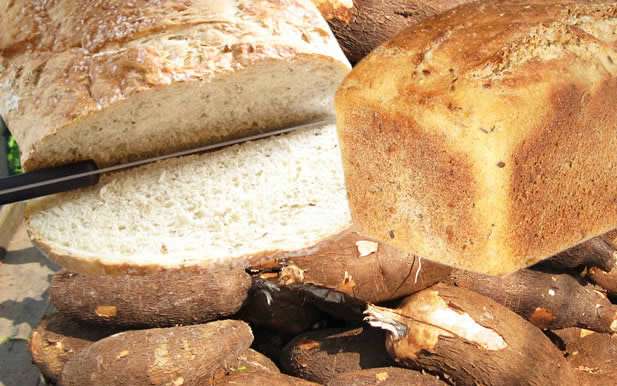
The former president of the National Cassava Growers Association (NCGA) Pastor Segun Adewumi had said 20% of cassava flour inclusion in bread production can save Nigeria N1 trillion annually from the wheat flour importation bill.
IdanNews gathered that the President at a roundtable dialogue on ‘building a stronger economy through the agro commodity value chain’ organized by the Federation of Agricultural Commodity Association of Nigeria (FACAN) at the weekend in Abuja also noted that in 2014 Nigeria spent billions importing cassava derivatives such as enhance, industrial starch, biofuel, sweetener, affirms that Nigeria can save up to N3trillion annually from import bill if the items were produced locally.
Adewuyi said “For instance, in 2014, Bread bakers in Nigeria utilized 16,600 metric tonnes of flour daily for bread. As of today, I am told that white wheat flour sells for about N650,000. This is to say if we use around 6,059,000 metric tonnes of flour per annum, the cost of the flour that we use comes to N3.9 trillion. Right now, Nigeria is the second-highest importer of Wheat in the world. Whereas, Nigeria has expansive arable land and an able workforce.
“It is also a known fact that bread can tolerate 40% Cassava Flour, a situation that will make the bread better for our health. Why should we not consider saving at least 20% of the import bill by the 20% inclusion of Cassava flour in our bread.”
“If we start with 20% inclusion, we shall save about N1 trillion annually from our import bill. We would also have repatriated back to Nigeria the benefit of gainful employment for our Farmers, Service providers, and Skilled and Unskilled labour force in our factories which we export when we import what we can produce locally” he stated.
Adewumi, however, lamented that due to the high cost of production cassava produced in the country cannot compete favorably in the international market saying while a tonne of cassava is sold at $200 in the global market, the cost of production of a tonne of cassava is about $400.
He attributed the high price to the high cost of production, saying Nigeria, Cassava cannot penetrate the World market because the practice of agriculture in Nigeria is still in the crude form, and the entire production is manually cultivated.
To achieve a transformation agenda in the cassava value chain, Adewumi called for the establishment of the Cassava Development Commission which will be saddled with the responsibility of creating two special programs Cassava for food security and cassava for industrial usage